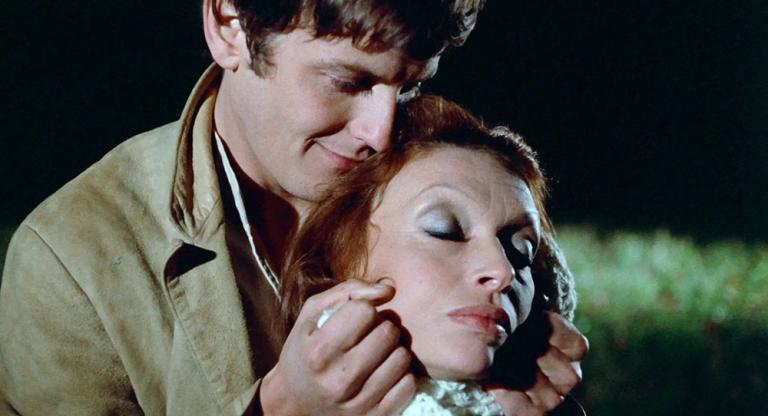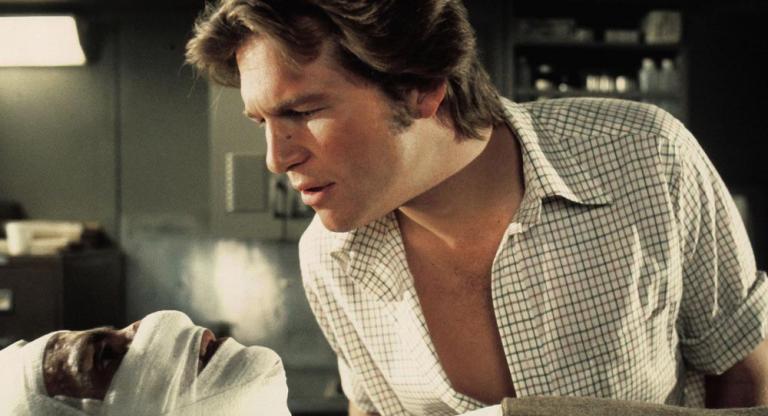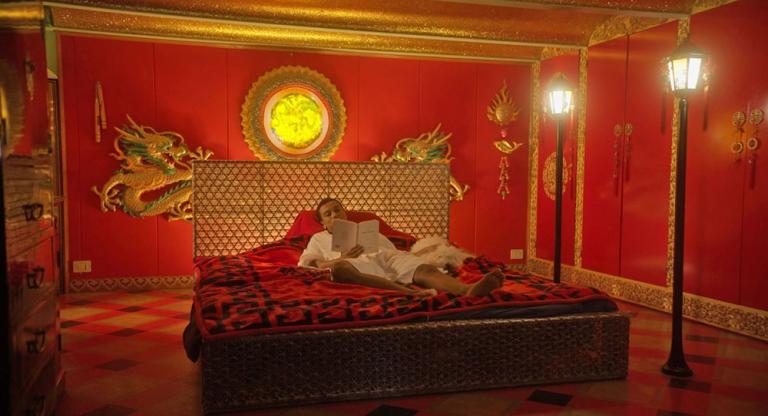French animator René Laloux’s Fantastic Planet premiered in the main competition at the 1973 Cannes Film Festival, which remains a rare distinction for an animated feature. But the film, a mesmeric celluloid parable, quickly won over audiences with its arresting visuals and biting ruminations on animal rights, colonialism, and subjugation, and went on to earn the Grand Prix special jury prize.
Directed by Laloux, his feature-length debut, and adapted by him and French surrealist illustrator Roland Topor from Stefan Wul’s 1957 novel Oms en série, Fantastic Planet is set on a faraway world in the distant future, where humans—or “Oms”—are kept as pets by giant, enlightened aliens called “Draags.” This vicious subjugation of the Oms inevitably led viewers to consider the film as a reflection on the complicated relationship between humans and animals, as the Draags brutalize, but then feel lost without, their pets. Fantastic Planet is both a thoughtful, eerily prophetic analysis of human behavior and a ravishing visual feat. Czech character designer Josef Kábrt brings to life the fantastic planet’s uncanny creatures with a brilliant metallic blue, embellished with hand-drawn cross-hatching that evokes the surrealist imagery of artists like René Magritte, Salvador Dalí, and Hieronymous Bosch. The paper cut-out figures move via exceptionally executed stop-motion across Josef Vána’s crowded background, laden with strange organisms and rocky landscapes. Tying it all together is French jazz pianist Alan Gorageur’s score: a leisurely, free-flowing composition that incorporates alien-like vocals, discordant sax, and the film’s exaggerated, cartoonish sound effects. The combination of these elements immerse the viewer in Fantastic Planet’s hallucinogenic dream-logic.
Following the success of Fantastic Planet, Laloux went on to make two more features, both concerned with totalitarianism and oppression. Time Masters (1982), also adapted from a novel by Wul and designed by Mœbius, features chilling, tyrannical, faceless angels. Similarly, Gandahar (1987) includes a gang of dictatorial robots. At its core, surrealism has always been about rebellion. Fantastic Planet employs it in a fashion that makes the film’s commentary trenchant.
Fantastic Planet screens on 35mm Saturday and Sunday at the Roxie.
Previously:
Fantastic Planet screens Friday and Saturday, July 15 & 16, at midnight on 35mm at Nitehawk Williamsburg.






